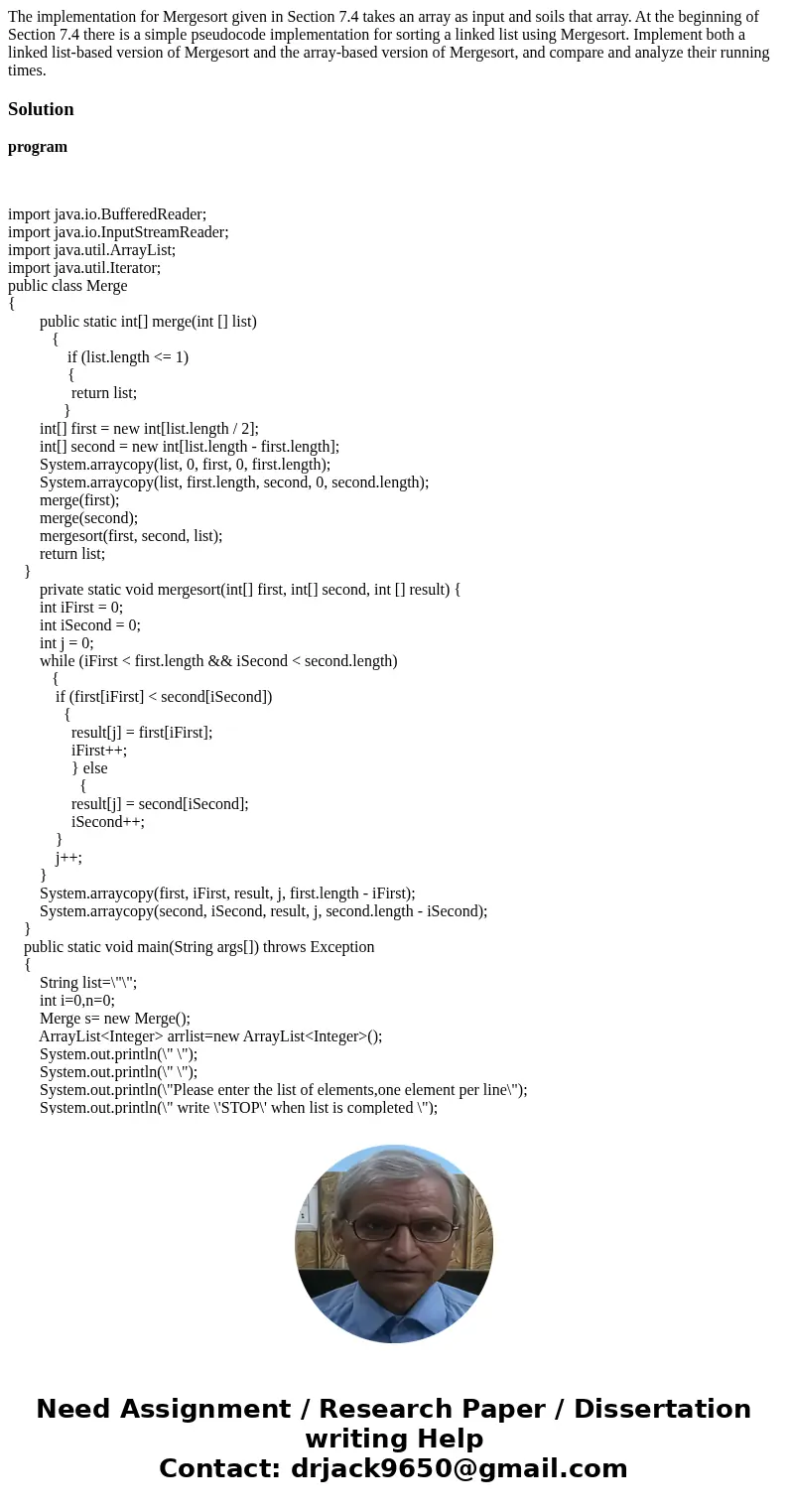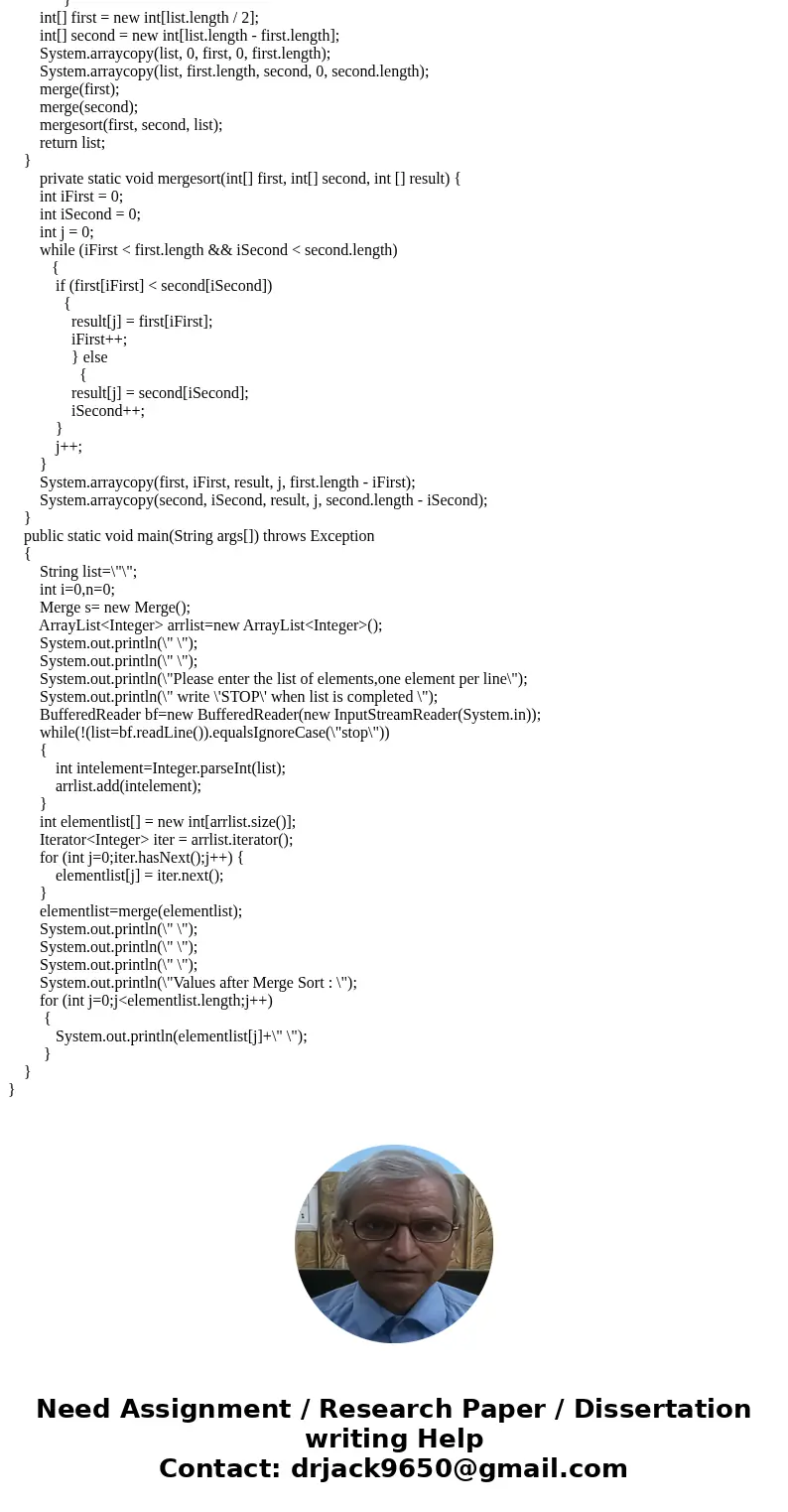The implementation for Mergesort given in Section 74 takes a
Solution
program
import java.io.BufferedReader;
import java.io.InputStreamReader;
import java.util.ArrayList;
import java.util.Iterator;
public class Merge
{
public static int[] merge(int [] list)
{
if (list.length <= 1)
{
return list;
}
int[] first = new int[list.length / 2];
int[] second = new int[list.length - first.length];
System.arraycopy(list, 0, first, 0, first.length);
System.arraycopy(list, first.length, second, 0, second.length);
merge(first);
merge(second);
mergesort(first, second, list);
return list;
}
private static void mergesort(int[] first, int[] second, int [] result) {
int iFirst = 0;
int iSecond = 0;
int j = 0;
while (iFirst < first.length && iSecond < second.length)
{
if (first[iFirst] < second[iSecond])
{
result[j] = first[iFirst];
iFirst++;
} else
{
result[j] = second[iSecond];
iSecond++;
}
j++;
}
System.arraycopy(first, iFirst, result, j, first.length - iFirst);
System.arraycopy(second, iSecond, result, j, second.length - iSecond);
}
public static void main(String args[]) throws Exception
{
String list=\"\";
int i=0,n=0;
Merge s= new Merge();
ArrayList<Integer> arrlist=new ArrayList<Integer>();
System.out.println(\" \");
System.out.println(\" \");
System.out.println(\"Please enter the list of elements,one element per line\");
System.out.println(\" write \'STOP\' when list is completed \");
BufferedReader bf=new BufferedReader(new InputStreamReader(System.in));
while(!(list=bf.readLine()).equalsIgnoreCase(\"stop\"))
{
int intelement=Integer.parseInt(list);
arrlist.add(intelement);
}
int elementlist[] = new int[arrlist.size()];
Iterator<Integer> iter = arrlist.iterator();
for (int j=0;iter.hasNext();j++) {
elementlist[j] = iter.next();
}
elementlist=merge(elementlist);
System.out.println(\" \");
System.out.println(\" \");
System.out.println(\" \");
System.out.println(\"Values after Merge Sort : \");
for (int j=0;j<elementlist.length;j++)
{
System.out.println(elementlist[j]+\" \");
}
}
}


 Homework Sourse
Homework Sourse